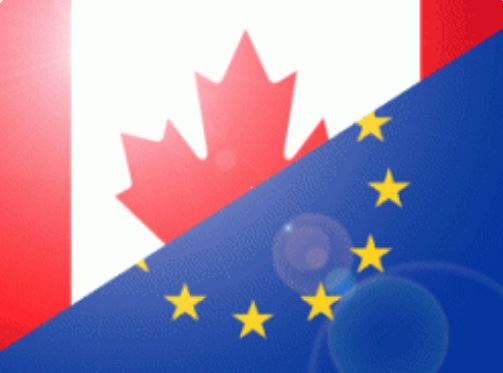CETA, Trade agreement between the EU and Canada

The Comprehensive Economic and Trade Agreement (CETA) is a negotiated EU-Canada treaty. Once applied, it will offer EU firms more and better business opportunities in Canada and support jobs in Europe.
CETA will tackle a whole range of issues to make business with Canada easier. The agreement contains also all the guarantees to make sure that the economic gains do not come on expense of democracy, environment or consumers’ health and safety. The trade negotiating mandate was made public in December 2015.
CETA Ending custom duties
CETA (Comprehensive Economic and Trade Agreement) aims to eliminate or significantly reduce customs duties on a wide range of goods between Canada and the European Union. This wil save European exporters around €470 million a year.
A far reaching elimination of customs duties will apply also to the farming and food sector. Nearly 92% of EU agriculture and food products is exported to Canada duty-free.
Thanks to tariff elimination the EU processing industry will have better access to Canadian fish. Sustainable fisheries will be developed in parallel, in particular with regard to monitoring, control and surveillance measures, and the fight against illegal, unreported and unregulated fishing.
Regulatory cooperation
In addition, the chapter on technical barriers to trade (TBT) contains provisions to improve transparency and closer contacts between the EU and Canada in the field of technical regulations. The EU and Canada agree to further strengthen links between their relevant standard setting bodies. Both sides have agreed to accept the conformity assessment certificates issued by each other’s conformity assessment bodies in a number of sectors, such as electrical, electronic and radio equipment, toys, machinery, and measuring equipment. This means a conformity assessment body in the EU can test EU products for export to the Canadian market according to Canadian rules and vice versa. This will avoid both sides doing the same test and could considerably reduce costs for companies and consumers alike. This will particularly help smaller companies for whom paying twice for the same test can be prohibitive. Keep in mind, the agreement also recognizes countries’ rights to adopt the standards they consider appropriate, so it is always needed to check for any additional requirements.
Certification Experts
Certification Experts can support companies in the EU and Canada to get access to their desired markets. Our experts have knowledge of all regulations regarding product safety, conformity assessment and documentation. Contact us for more information, or get free advice from one of our experts.
Find More Insights

Construction Products Regulation 2013

The lifts and safety components of lifts Directive 2014/33/EU

Personal Protective Equipment (PPE) Regulation EU 2016/425

NEN-EN 1090, 1 July 2014

Full-service product compliance
Leave it to us.
